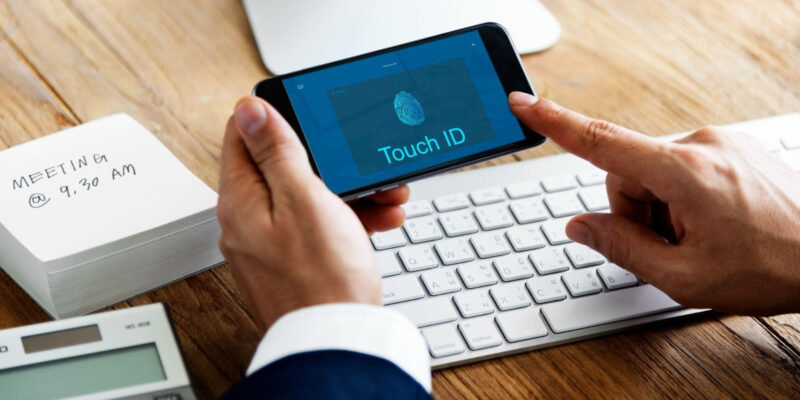
In an age where our lives are increasingly digitized, cyber security has become a vital component of everyday life. From financial transactions to social media interactions, personal data is constantly at risk of being compromised. With the rise of remote work, online education, and e-commerce, cyber threats have evolved, making it more important than ever to protect your online presence. One of the most accessible and effective tools in your digital defense toolkit is a free VPN.
Understanding Cyber Security in Today’s Digital World
Cyber security refers to the practice of protecting systems, networks, and programs from digital attacks. These attacks are often aimed at assessing, changing, or destroying sensitive information, extorting money from users, or interrupting normal business processes.
With cyberattacks becoming more frequent and sophisticated, businesses and individuals alike must implement robust security measures. These include firewalls, antivirus software, two-factor authentication, and perhaps most importantly, Virtual Private Networks (VPNs).
Common Cyber Threats in 2025
The cyber threat landscape has expanded dramatically in recent years. Here are some of the most common risks users face today:
- Phishing Attacks: Fraudulent emails or messages designed to trick recipients into revealing personal information.
- Ransomware: Malicious software that locks data or systems until a ransom is paid.
- Data Breaches: Unauthorized access to personal or corporate data.
- Man-in-the-Middle (MitM) Attacks: Interceptions of communication between two parties to steal or manipulate data.
- Public Wi-Fi Vulnerabilities: Open networks often lack encryption, making them a hotspot for cybercriminals.
Each of these threats highlights the need for an additional layer of protection when browsing the web—especially when using unsecured networks.
What is a VPN?
A VPN, or Virtual Private Network, creates a secure connection between your device and the internet. It encrypts your internet traffic and masks your IP address, effectively hiding your online activities from hackers, ISPs, and even government surveillance.
How VPNs Work
VPNs function by routing your internet connection through a remote server operated by the VPN service provider. This server acts as a proxy between you and the web, ensuring that all data transferred is encrypted and secure. As a result, your identity and location remain hidden.
Why You Should Use a VPN for Cyber Security
Using a VPN significantly enhances your online security and privacy. Here’s how:
- Encrypts Data: VPNs use advanced encryption protocols to protect your data from interception.
- Hides IP Address: By masking your IP, VPNs make it difficult for websites and attackers to track your online behavior.
- Secures Public Wi-Fi: VPNs provide a secure tunnel for your data, even on unsecured public networks.
- Bypasses Geo-Restrictions: VPNs can help you access content that may be restricted based on your geographical location.
- Prevents Bandwidth Throttling: ISPs often limit your internet speed based on usage; a VPN hides your activity to prevent this.
Introducing Free VPNs: A Cost-Effective Security Solution
Many people assume that online security tools come with hefty price tags. However, there are numerous free VPN services that offer excellent privacy features without any cost. For individuals who are just getting started with VPNs or those on a tight budget, this can be a game-changer.
Free VPN: Your Gateway to Safe Browsing
One of the top free VPN options available today is VPNLY. This service provides robust security features, user-friendly design, and reliable performance—all at no cost.
VPNLY offers:
- Unlimited bandwidth
- AES-256 encryption
- No-log policy
- Easy-to-use interface
- Multiple server locations
These features make VPNLY a strong contender in the realm of free VPN services, helping users enhance their cyber security without opening their wallets.
Pros and Cons of Free VPNs
While free VPNs can be incredibly useful, they are not all created equal. Here are some key advantages and limitations to consider:
Pros
- Zero Cost: Perfect for users on a budget or those wanting to test VPN technology.
- Improved Privacy: Even free VPNs encrypt your data and protect your identity.
- Easy Accessibility: Most are easy to download and set up without technical knowledge.
Cons
- Limited Servers: Free plans may offer fewer server options.
- Speed Limitations: Speeds might be slower compared to premium VPNs.
- Restricted Features: Advanced security and configuration options may be unavailable.
With these pros and cons in mind, it’s crucial to choose a free VPN provider that balances accessibility with strong privacy protections—like VPNLY.
Who Should Use a Free VPN?
Free VPNs are ideal for casual users who need basic internet protection and anonymity. Here are a few user profiles that would benefit:
- Students accessing educational content from different countries.
- Travelers using public Wi-Fi at airports and hotels.
- Remote Workers logging into secure systems from different networks.
- Online Shoppers seeking to protect payment information.
Whether you’re browsing the web, streaming content, or conducting sensitive work remotely, a free VPN like VPNLY adds an essential layer of protection.
How to Choose the Right Free VPN
When selecting a free VPN, consider the following:
- Reputation: Research user reviews and professional evaluations.
- Privacy Policy: Look for strict no-log policies.
- Encryption Standards: Ensure it uses strong encryption like AES-256.
- Ease of Use: The interface should be intuitive.
- Customer Support: Availability of help or FAQs is a plus.
VPNLY checks all these boxes, making it a top choice for those seeking a secure, reliable, and cost-free VPN solution.
The Future of Cyber Security and VPN Technology
As cyber threats evolve, so too must our defensive technologies. The future of VPNs will likely involve:
- AI-based threat detection
- Integrated antivirus and anti-malware features
- Blockchain-based security models
- More global server coverage
- Enhanced speeds and stability
Staying ahead of cybercriminals requires not just tools, but awareness. Incorporating VPNs—especially accessible ones like free VPN—into your cyber security routine is a powerful step toward a safer digital life.
Final Thoughts
In today’s interconnected world, cyber security is not a luxury—it’s a necessity. From identity theft to surveillance, the threats are real and persistent. Fortunately, tools like free VPN services offer an affordable, effective way to safeguard your personal data and online activity.
VPNLY stands out as a reliable and user-friendly option for anyone looking to take their online privacy seriously without breaking the bank. Whether you’re working remotely, traveling abroad, or simply browsing from home, a free VPN can provide peace of mind and a secure connection.
Start your journey toward better online security today—with a trusted name like VPNLY.








